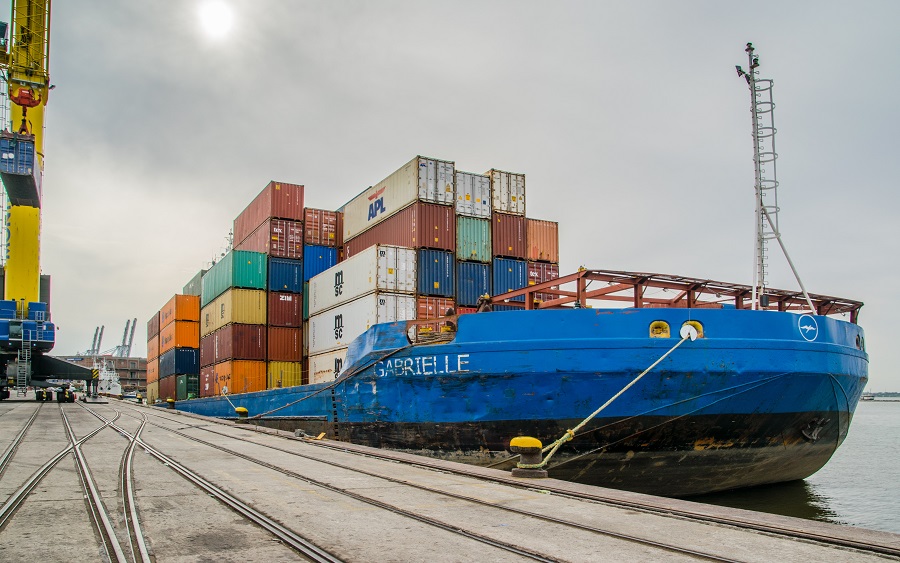Nigeria’s GDP report for the second quarter was recently released showing that Gross Domestic Product (GDP) grew by 5.01% (year-on-year) in real terms in the second quarter of 2021, marking three consecutive quarters of growth following the negative growth rates recorded in the second and third quarters of 2020.
The growth represented the fastest quarterly growth in five years, with a single sector, the Trade Sector contributing about 16.66% of GDP, a sharp rise of 22% in Q2 2021, and its fastest since at least 2016.
According to a recent report by Nairametrics, the reason for trade growth lies in an economic phenomenon termed base effects. In 2020, Nigeria’s trade sector suffered a massive contraction of 16.5%, at the time the 5th straight contraction that started in the third quarter of 2019 when the government announced its border closure.
The 16.5% contraction in the second quarter of 2020 will be one of the largest and was exacerbated by the economic shutdown that followed the declaration of the Covid-19 pandemic.
That economic shutdown in movements in major cities across the country, including Lagos and Abuja was the major reason for the crash in economic activities in the Trade Sector. Coupled with the border closure that was still in place, the sector was effectively in the doldrums.
However, economic activities have picked up since the 4th quarter of 2020 after the government jettisoned its border closure restrictions and relaxed its Covid-19 protocols.
The growth in Trade represents a major factor for the success of the African Continental Free Trade, (AfCFTA), and Nairametrics also recently reported that the Secretary-General of the Africa Continental Free Trade Area, Mr Wamkele Menes revealed the Pan-African Payment and Settlement System (PAPSS) would save the continent the sum of $5 billion annually when operational. He said: “There is an objective that one day, Africa would be a monetary union.”
“Converting the about 42 currencies in Africa with its attendant cost of over five billion dollars yearly is a whole lot and so we want to reduce and eliminate this for the purpose of trading.
“Local banks would be able to switch to the platform as we are in consultation with the central banks and by the end of the year, we would be in a position to say the platform is available for all African countries that want to switch to it.
Afrexim Bank has invested over one billion dollars and it is a strong signal that the AfCFTA would work.”
The growth in trade comes at a period Africa is testing a cross border payment system, PAPSS, which would enable the Naira gain cross border value in regional trade.
The border closure created painful bottlenecks as Nairametrics reported in June that Nigeria’s agricultural import continues to skyrocket despite the significant funding received by the sector and various measures put in place by the federal government to increase the agricultural productivity in the country.
According to the foreign trade report by the National Bureau of Statistics (NBS), Nigeria’s agricultural imports spiked by 140% year-on-year in Q1 2021. Nigeria imported agricultural items worth N630.18 billion in the period compared to N262.1 billion in Q1 2020.
The borders were also closed in other to spur the domestic agricultural industry in the country. Furthermore, the central bank placed restrictions on the access to forex for the importation of food items, some of which include rice, meat, chicken, and more recently, sugar and wheat.
However, this has not yielded substantial results as the sector has only managed tepid growth in the past two years. This is despite being the highest employer of labour in the country. A cursory look at Nigeria’s GDP data shows that the agricultural sector had an annual growth of 2.17% and 2.36% in 2020 and 2019 respectively.
Prince Nwafuru, an international trade lawyer at Paul Usoro & Co says Nigeria also needs to invest in infrastructure and logistics to improve intra-African trade with other countries.
He said he is confident that trade will contribute more to GDP growth from AfCFTA because “The AfCFTA will definitely contribute to more growth in Nigeria’s economy. The AfCFTA provides an opportunity for Nigeria to diversify its economy and move away from over-reliance on oil as the new trade deal is meant to open the door to a population of 1.3 billion people with a combined GDP of USD2.6 trillion.
“Nigeria should therefore focus on areas it has competitive advantages in order to harness the benefits of the trade deal. “To maximize the benefits, Nigeria also needs to invest in infrastructure and logistics to improve intra-African trade with other countries,” he added.
Bottomline
As the African Union prepares to test the PAPSS system to enable growth, Nigeria needs to invest in certain infrastructure that contributes to regional trade, from ports to border crossings in order to fully leverage West African trade to grow the nation’s economy.







